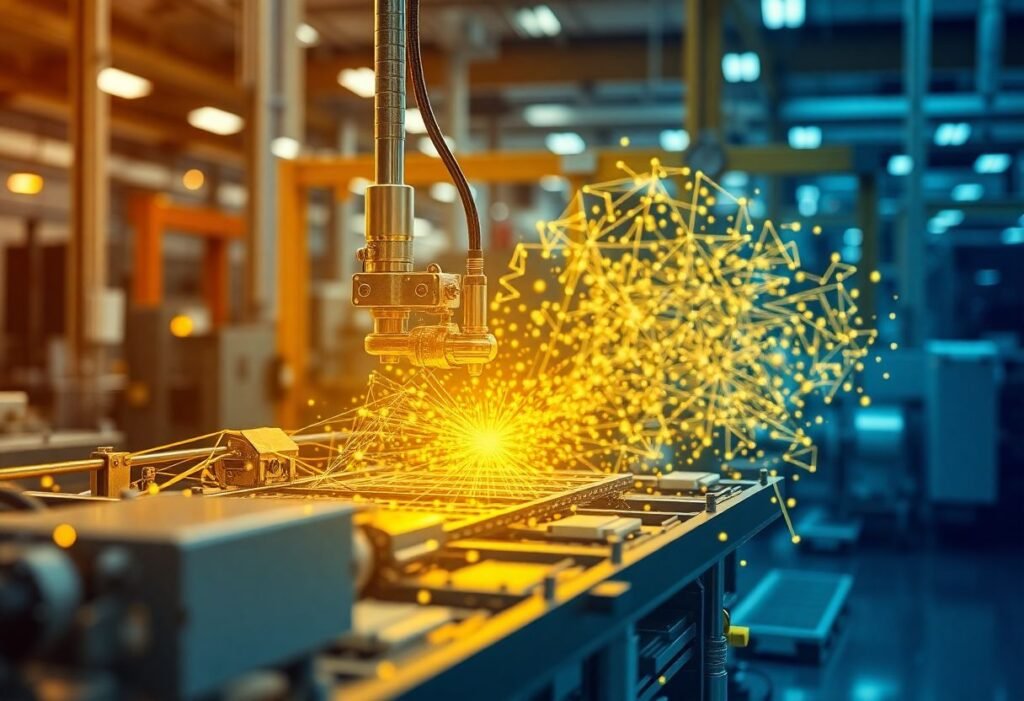Automation plays a pivotal role in transforming advanced manufacturing techniques, driving innovation across industries. The integration of automation technologies not only enhances productivity but also reshapes the landscape of manufacturing by introducing greater precision, efficiency, and flexibility.
The Impact of Automation on Manufacturing Efficiency
Automation significantly boosts manufacturing efficiency through the use of intelligent systems and machines that streamline processes. By minimizing manual intervention, manufacturers can achieve higher throughput with fewer errors. This end-to-end automation transforms traditional workflows into streamlined operations that are capable of rapid production cycles. For instance, implementing robotic systems allows for continuous operation without the need for breaks, which increases overall production rates. Furthermore, automated systems can adapt to changing demands, allowing manufacturers to scale production volumes with ease. The consequential reduction in labor costs and material waste contributes to substantial savings, making automation a cornerstone of modern manufacturing.
Enhancing Quality Control through Automation
Quality control is another critical aspect that benefits from automation in manufacturing. Leveraging automated technologies such as machine vision systems enables real-time monitoring of products throughout the manufacturing process. Any defects can be identified and addressed immediately, reducing the chances of faulty products reaching the market. These systems apply consistent standards of quality that are unattainable through manual inspection, thus enhancing product reliability. As innovation continues to drive the evolution of manufacturing technology, companies adopting these systems are better positioned to meet consumer expectations, fostering loyalty and brand reputation.
Innovation in Product Development through Automation
Automation facilitates a cycle of rapid product development that allows companies to innovate more effectively. Automated processes support the prototyping phase, enabling manufacturers to create and test new designs with rapid feedback loops. This accelerates the transition from concept to market-ready products. Moreover, the integration of automation with advanced technologies like 3D printing enhances the ability to create customized solutions tailored to specific consumer needs. Companies can leverage these capabilities to stand out in competitive markets, prioritizing innovation while meeting customer demand.
Cost Reduction and Economic Advantage of Automation
Implementing automation can lead to significant cost reductions across various facets of the manufacturing operation. By reducing labor costs, minimizing waste, and enhancing resource efficiency, companies can redirect funds towards further innovation and development. The initial investment in automation technology often yields high returns, making it a financially sound choice for businesses aiming for longevity. In a competitive global market, those firms that leverage automation technologies tend to hold a strategic advantage, consistently outperforming their less automated counterparts.
The Role of Data Analytics in Automated Manufacturing
The fusion of automation with data analytics heightens the potential for manufacturing innovation. Automated systems generate vast amounts of data that can be analyzed to gain insights into production performance and consumer trends. Manufacturers can utilize this data to optimize operations, predict equipment failures before they occur, and formulate strategic decisions that drive continuous improvement. The result is an agile manufacturing environment that is both responsive and predictive, helping businesses thrive in an era marked by rapid technological advancement.
Future Trends in Automation and Manufacturing Innovation
Looking ahead, the future of automation in manufacturing is bright, with trends such as collaborative robots (cobots) and artificial intelligence (AI) set to redefine industry standards. Cobots work alongside human employees to augment their capabilities, leading to a smarter workforce. Moreover, the application of AI in predictive maintenance and supply chain management will further streamline operations. As industries embrace these cutting-edge technologies, the realignment of the workforce and a renewed focus on skills development will be imperative in harnessing the full potential of automation.
Disclaimer: This article is for informational purposes only and should not be considered as professional advice.





















